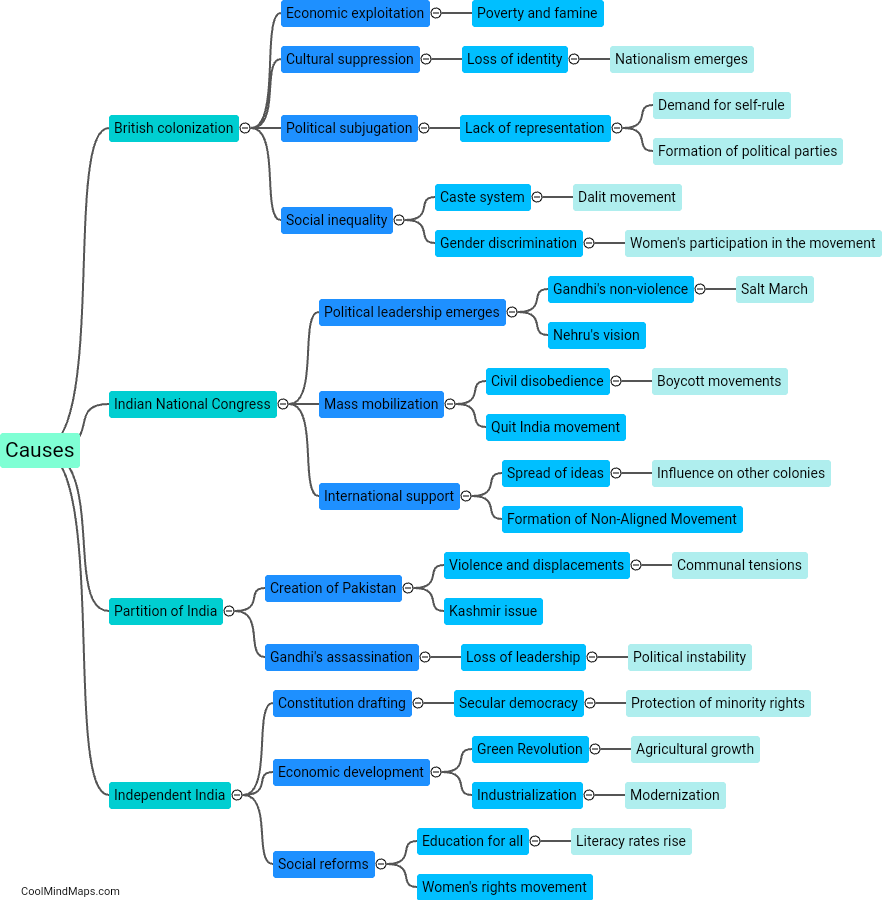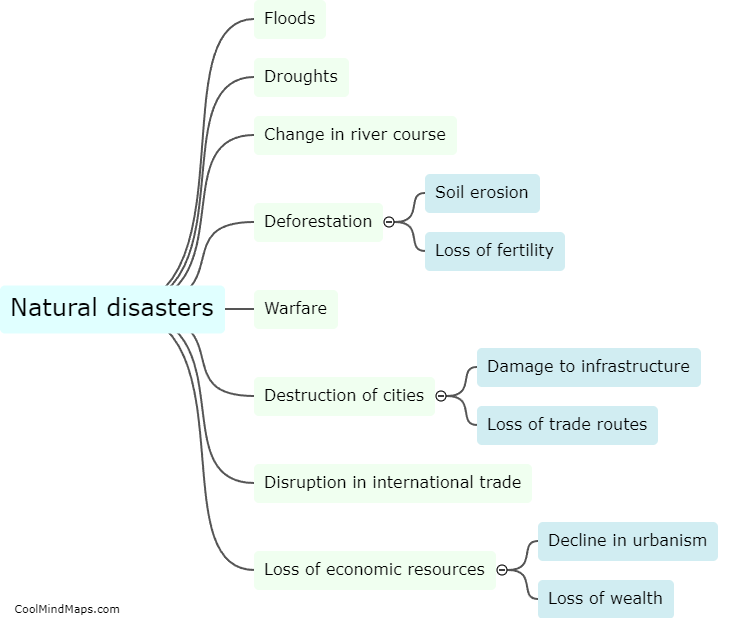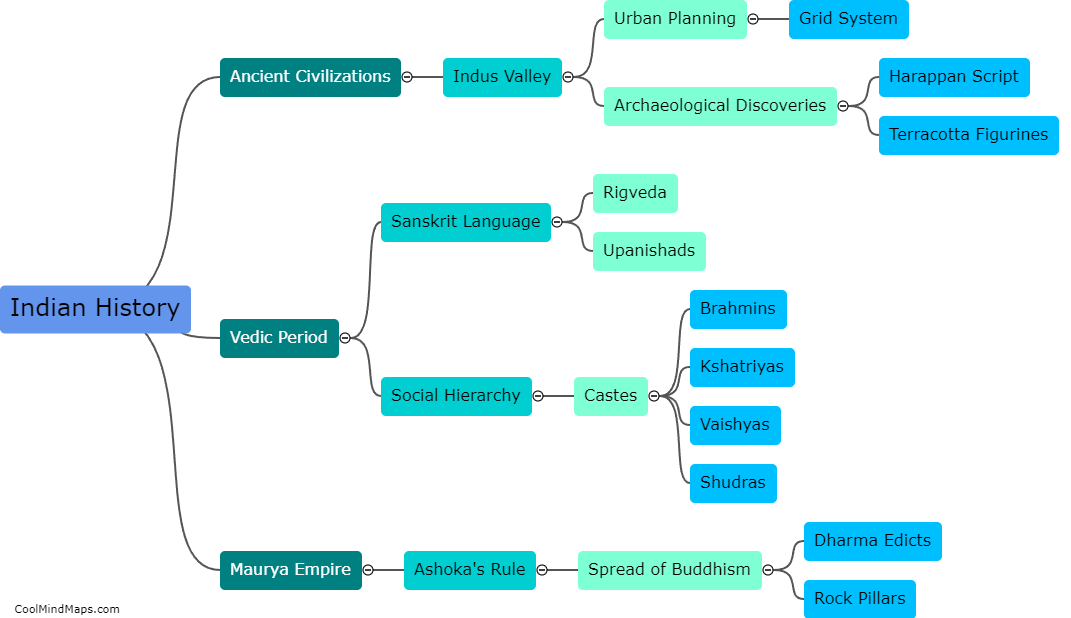What were the causes and effects of the Indian Independence Movement?
The Indian Independence Movement, which took place between the late 19th and mid-20th centuries, was primarily fueled by several key causes. Firstly, the oppressive policies and discriminatory practices of the British colonial rule deeply angered and alienated the Indian population. The economic exploitation by the British Raj, as well as the denial of civil rights and political participation, were significant grievances. Additionally, the ideas and ideals of nationalism and self-determination that had spread globally during the time played a crucial role in uniting Indians across different regions and socio-economic backgrounds. The movement resulted in numerous effects, both immediate and long-term. It led to the eventual expulsion of British imperial dominance and the establishment of an independent India in 1947. The movement also witnessed the emergence of prominent leaders like Mahatma Gandhi, Jawaharlal Nehru, and Subhas Chandra Bose, who became figures of inspiration and played pivotal roles in shaping Indian politics. Moreover, the Indian Independence Movement influenced other anti-colonial struggles around the world and contributed to the dismantling of the British Empire.

This mind map was published on 30 September 2023 and has been viewed 88 times.











